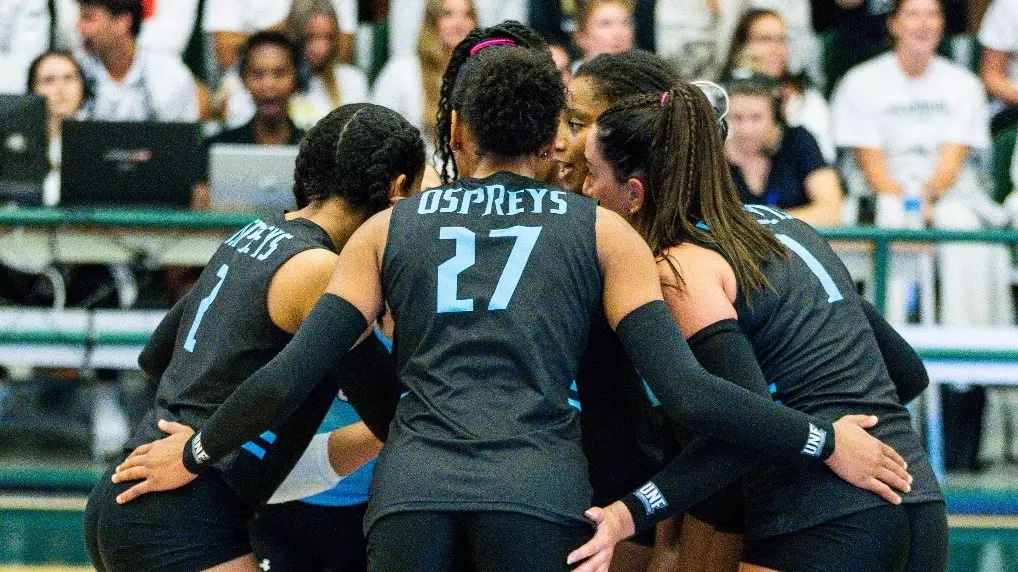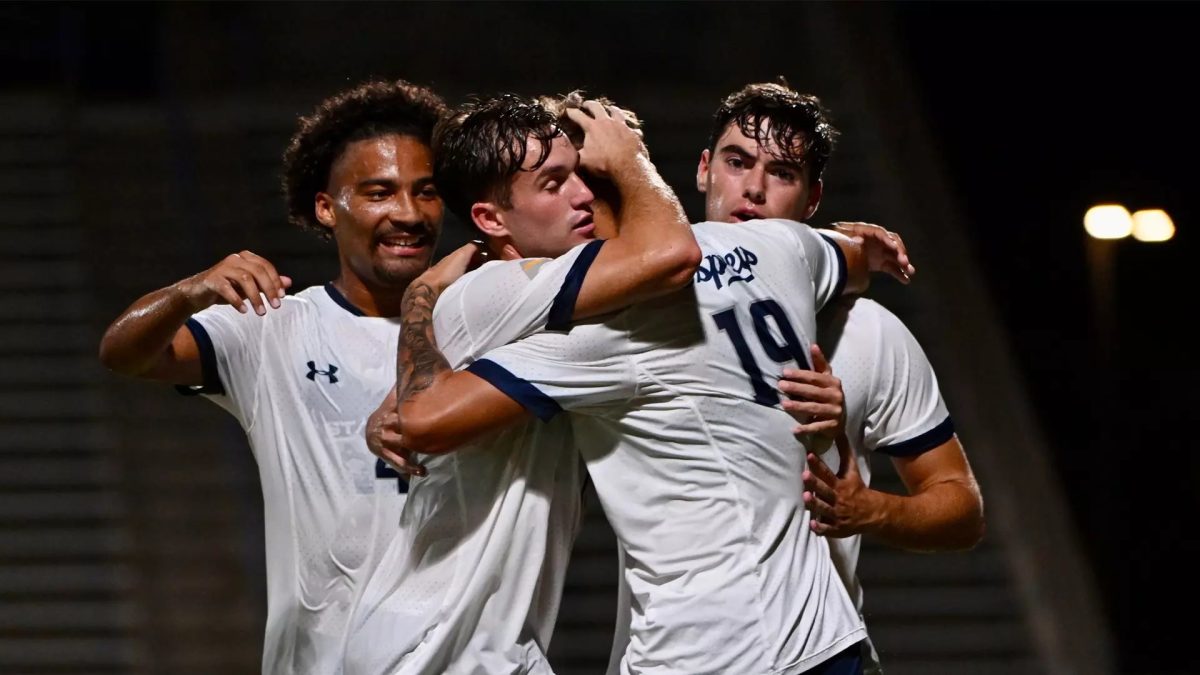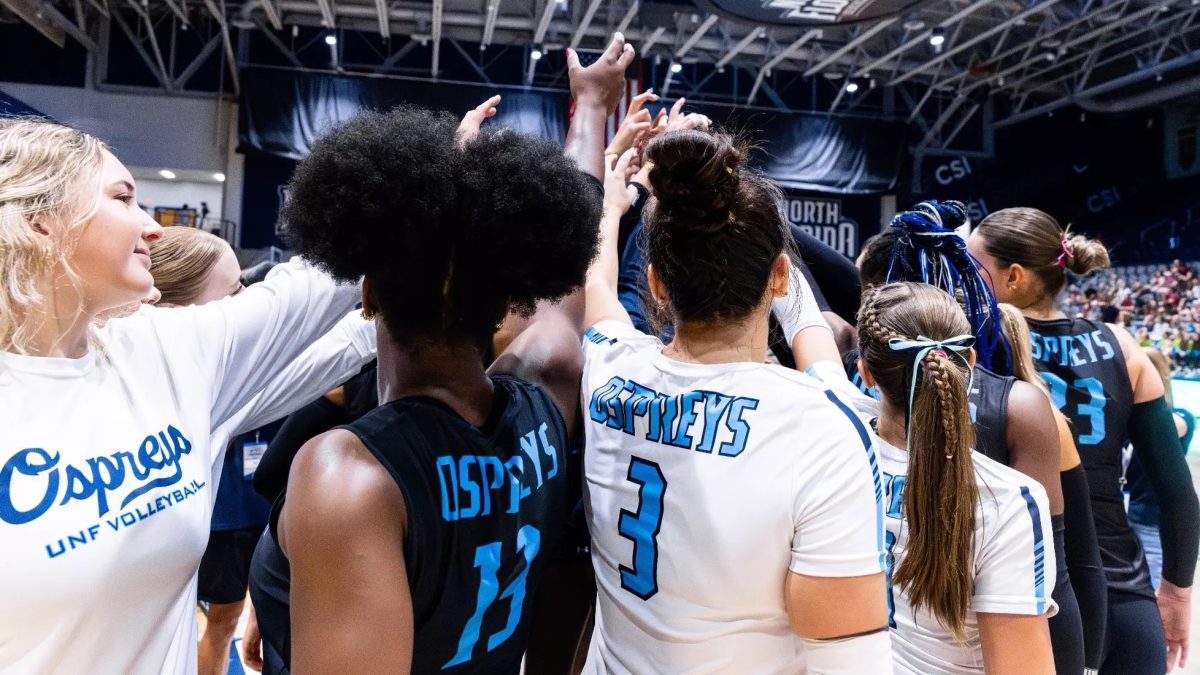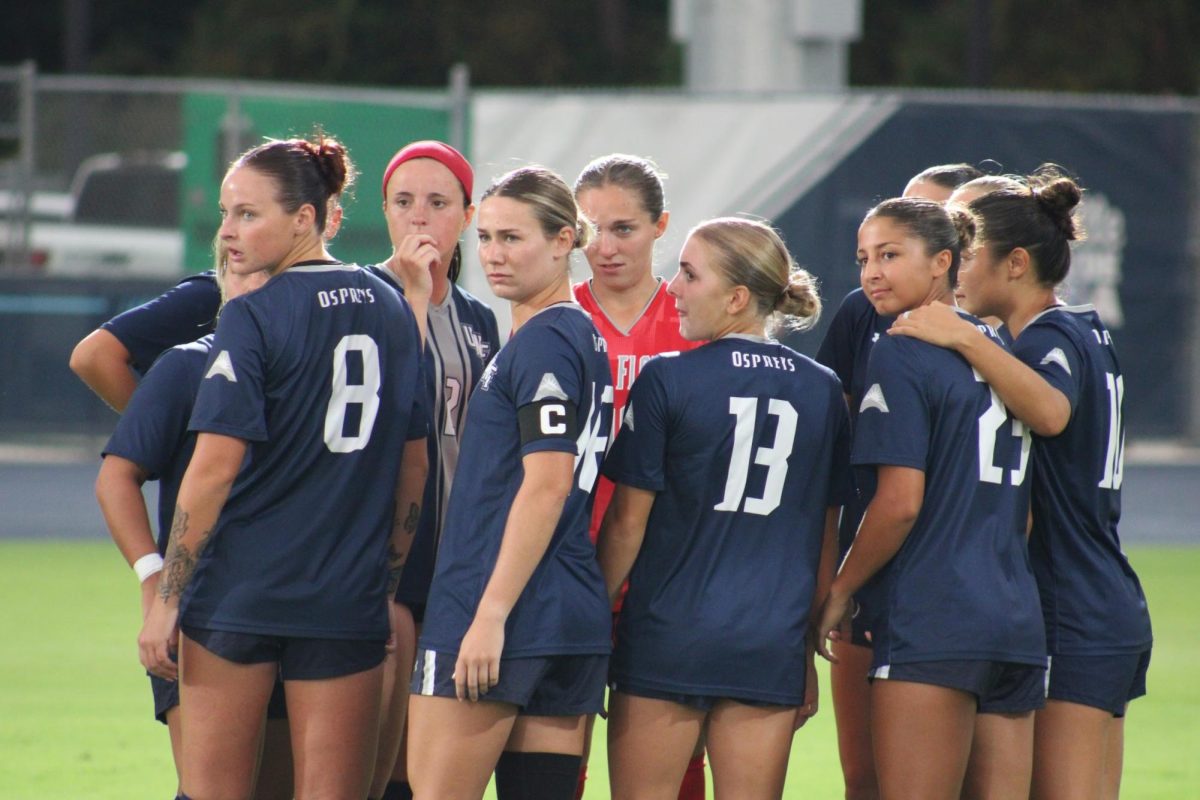Being a Division I athlete at UNF and bringing the same competitiveness they show on the court into the classroom can be a full-time job.
UNF student athletes, with an overall average GPA of 3.0, recently warranted national media attention for their academic prowess.
Kyle Whelliston wrote in a recent ESPN aticle, “Think of UNF as a Patriot League school with far superior weather.”
Head baseball coach Dusty Rhodes agreed.
“The idea of a dumb jock does not apply to the athletes here at UNF,” Rhodes said.
As a Division I school, the National Collegiate Athletic Association keeps UNF Athletics academically accountable with increasingly strict educational standards for student athletes and even stricter consequences if those standards are not met.
And Director of Compliance Michelle Bronner stressed the importance of administration being proactive in regards to student athletes’ performance in the classroom.
She teamed up with Wes Maas, the director for academic support for UNF, before the Fall 2008 semester to target which teams, based on their previous academic standing, were at risk of academic struggles for the 2008-2009 academic year.
Each student athlete’s academic standing is accumulated into one overall rate for each team, which is known as the academic performance rate.
It ensures student athletes are not only taking at least nine credit hours per semester but that they are also taking and passing classes that are degree-applicable, Bronner said.
This NCAA performance rate stands as one of the most threatening aspects of being a Division I school, Bronner said.
“[The APR rate] is the magic number,” she said. [If it’s low enough, it] can tear down your department and destroy you very quickly.”
The lowest rate a team can obtain without assessing penalties is 925; the perfect score is set at 1000. An APR rate of 925 represents a 50 percent graduation rate, Bronner said.
During the three-year transition from Division II to Division I, the NCAA granted UNF Athletics a mathematical “adjustment” to their APR rates, Bronner said.
This statistical formula – when applied – raises the APR and is given to schools without at least four years of submitted Division I APR data.
With these adjustments, all UNF Athletic teams have consistently made a 925 or higher.
In 2008, UNF reached its four-year mark as a Division I school and therefore has enough backlogged data so it no longer needs adjustment.
In the pre-fall meeting, Bronner and Maas found that without the adjustment, the APR rates for three teams – men’s basketball, men’s soccer and men’s tennis – were below 925 in the 07-08 academic year and would have incurred three first offense penalties from the NCAA.
The penalties would have included a potential loss of scholarships and an additional requirement to, as an institution, submit an improvement plan, Bronner said.
If the university failed to improve, historical penalties would begin to be assessed.
These might have included the loss of practice times, the prohibition of a team from competing in the end of the year championships, and in the most severe case, UNF Athletics would be put on probation as an NCAA member.
So it was a stress-reliever to realize the lower APR rates affected by retention factors such as transfers and drop-outs, not just grades, Maas said.
“We’ve weathered the storm,” Maas said. “We’ve gone through the transition [of losing Division II players]. All of the student athletes that are here now are here more in the realm of ‘We came because it’s a Division I university.’”
Most optional services such as study hall, grade checks, mentoring and workshops were made mandatory in the fall for some student athletes, and the men’s basketball team.
If any player missed a session for a non-travel-related reason, it would immediately result in suspension.
“Its our job as administrators and coaches to make sure that if we do have a student athlete that is at risk, these programs that we offer … we don’t make them optional; we make them the responsibility of the team,” Maas said. “There has to be the differentiation between ‘We’re here to get an education first and to be an athlete second.’”
E-mail Rebecca McKinnion at staff3@unfspinnaker.com.







